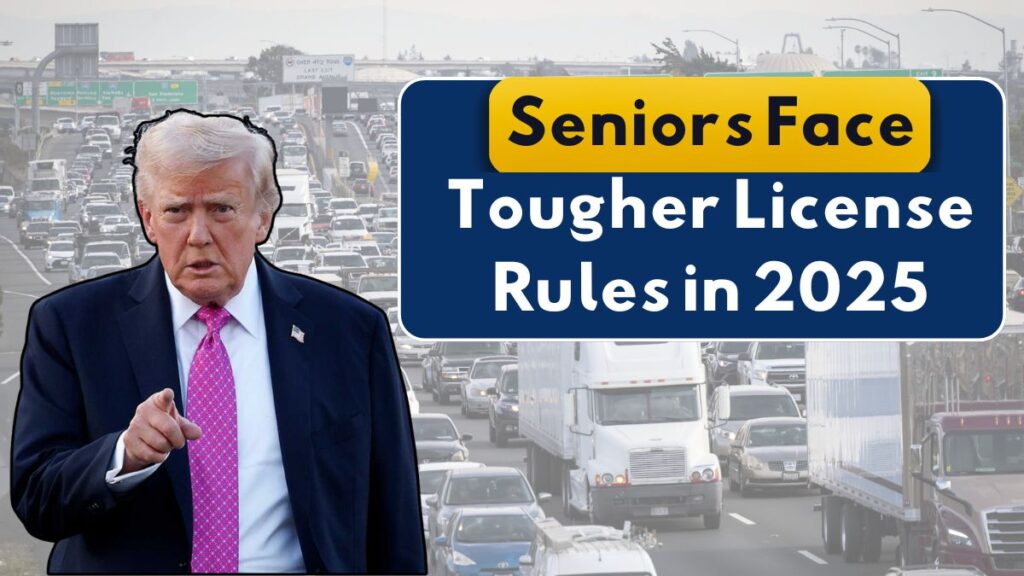US Driving License Rules – The United States has announced a major update to driving license rules in 2025, focusing particularly on senior citizens. With rising concerns over road safety and aging drivers, new regulations will make it mandatory for seniors to undergo additional medical and vision tests before license renewal. Stricter renewal processes have also been introduced, meaning seniors may face shorter validity periods and more frequent checks. While these changes aim to ensure road safety, they also raise concerns about mobility and independence for older drivers across the country. Here’s a full breakdown of the new rules.

2025 Driving License Renewal Process for Seniors in the US
The latest driving license renewal rules in the US have added new requirements specifically for senior drivers. Unlike younger applicants who may renew licenses every 8 years in some states, seniors will now be required to renew licenses more frequently, sometimes every 2–4 years depending on their state. The process includes mandatory in-person visits, stricter documentation checks, and additional fees for renewals. This update is part of a broader federal push to balance safety with independence, ensuring seniors remain fit to drive while minimizing road accidents caused by age-related impairments.
New Medical and Vision Test Requirements for Elderly Drivers
One of the most significant changes in 2025 is the introduction of compulsory medical and vision exams for drivers above a certain age, typically starting at 65 or 70 depending on state regulations. Seniors will need certification from licensed professionals to prove they are physically and mentally capable of safe driving. Eye tests will be conducted more rigorously to detect early vision problems. These health-based evaluations aim to identify risks before they affect road safety, but they may also be seen as a barrier for seniors who depend heavily on personal vehicles for daily life.
Stricter State-Specific Senior Driving License Rules
While federal guidelines set the baseline, each US state will enforce its own version of these rules. For example, some states may impose road tests for drivers over 75, while others may reduce license validity to two years for those above 80. Certain states may also require electronic driving records and GPS-based driving behavior checks for high-risk drivers. This state-by-state variation means seniors and their families must stay updated on local DMV announcements. Although stricter, these rules intend to reduce crashes while offering safe mobility options through alternative transport assistance programs.
Impact of 2025 Driving License Updates on Senior Citizens
The 2025 update to US driving license regulations has sparked mixed reactions. On one hand, road safety advocates welcome these measures as a necessary step to prevent accidents involving older drivers. On the other hand, senior associations argue that stricter rules may unfairly target elderly citizens, affecting their independence and quality of life. Many seniors, especially in rural areas with limited public transportation, fear that failing new medical or vision tests could leave them stranded. Policymakers are being urged to balance safety with accessibility by introducing better senior mobility schemes.
FAQs on US Driving License Rules 2025
Q1. At what age do new senior driving rules apply in the US?
Most states apply stricter license rules starting at age 65 or 70.
Q2. Do seniors need to take a vision test in 2025?
Yes, regular vision and medical tests are mandatory for senior license renewals.
Q3. Will license validity change for older drivers?
Yes, many states have reduced renewal validity for seniors to 2–4 years.
Q4. Are all states following the same rules?
No, each state may have different rules, road tests, or renewal requirements.
What changes are seniors facing in the 2025 US Driving License Rules update?
New tests and stricter renewal process for seniors.
How has the renewal process changed for US seniors in 2025?
Seniors now face stricter renewal processes and new driving tests.




